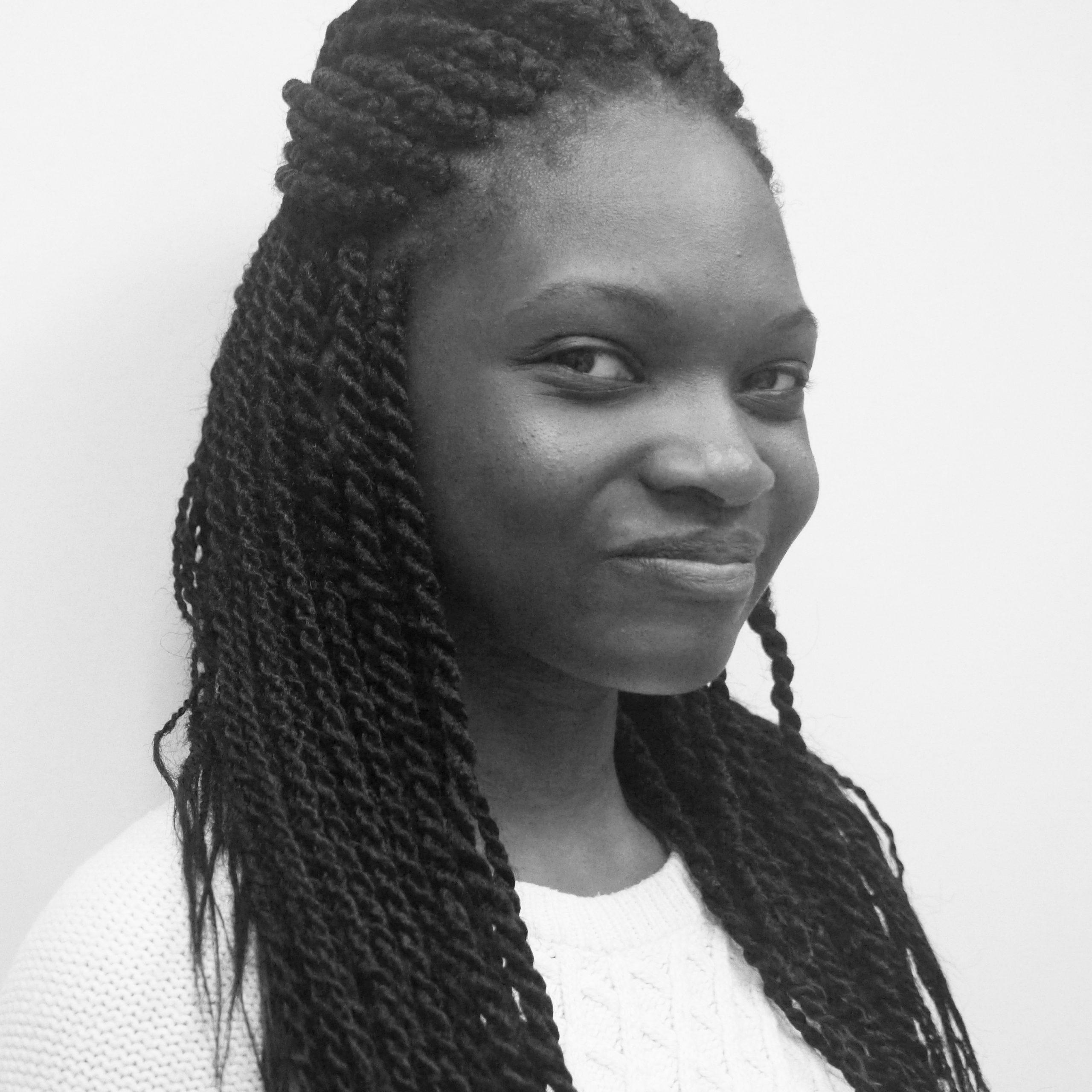4 Negative Thoughts To Stop Believing Now

Times were truly simpler when we were able to sit around and daydream about what we wanted to be when we grew up.
For girls, desiring to be a princess, an explorer, a chef or even the next president of the United States was easy to imagine. There were no limits to the goals on our agenda. But as time passed, our experiences began to impact our perceptions about the world and our desires, based around the challenges in our lives or the cynics that plant negative talk in our head. Our fears become the big monsters in the shadows that hold us captive from creating the reality we desire. As a consequence, we shrink back and do nothing. This can be the scene that runs through the minds of many women of color.
Our fears become the big monsters in the shadows that hold us captive from creating the reality we desire
No matter how much we want to ignore these ideas, it happens. Our negative thoughts may not all be exactly the same. But many of these thoughts may have the same starting point – insecurity. I myself have wrestled with many negative thoughts that have held me back from taking the next step. So, I was curious about how this looks in other women’s minds. I decided to compare notes with other ambitious women who struggled with negative thinking.
Here were the top four thoughts that tended to come up for all of us:
1. Am I Sure I’m Supposed To Be Here?
Before you embark on a journey, knowing where you’re at and where you’re going is important. Yardley Messeroux, Health Coach and Author of Rise & Shine Bright at Work: 12 Powerful Mornings to Conquer the Office Shenanigans is someone who is very aware of this. In everything that she does, she thinks about all her ‘whys.’ As a woman of color success is a heavy word.
“I want to usually put my all into something– my 100 percent effort if not more,” she says. “So if I’m going to be investing a lot of time, energy, thought space, all of that, I want to be really sure that it’s worth it and I reach my goal.”
Messeroux enjoys using her cooking and her faith as a Christian to empower professionals in having control over their work week and their well being. She believes that if she makes moves without asking whether her purpose aligns with God’s plan, then it strips Him out of the picture and becomes a self-focused journey.
For Nagela Dales her challenge is with looking back at her past journey and not being able to relate her experiences to the stories of the clients she collaborates with. “My story isn’t necessarily big in the corporate world or white collar jobs,” she said. “That’s so outside of my upbringing.”
Dales is the Founder of Silver Lining Creative Agency (SLCO), a Brand Strategy and Content Marketing company; a job she never imagined herself doing as a kid. Growing up as a first-generation Haitian American, she only saw people like her in professions as security guards, home health aide, and taxi drivers. If a Caribbean person in her community had their own business, it would usually fall under the restaurant industry. Dales steered completely away from the paths that may have been expected from her and carved out her own niche based on her love for art and helping others successfully promote their business story. The thought that constantly hovers in her mind is whether she’ll be accepted because of the way she looks and her skill set. Dales went to school for medicine and science but ended up learning everything she knew about graphic design through work experiences with the Red Cross and corporate planning.
“I remember the first time using Photoshop and crying for six hours trying to figure out what Photoshop was,” said Dales. “It was like literally someone putting me on an alien ship and telling me to fly it!”
Dales was excited about learning all these new skills. Yet she couldn’t help but wonder whether her clients would use her looks as a determining factor when it came to working with her. She thought that they would rather work with someone that looked more like them. Acceptance became the big monster in the shadows for her.
I remember the first time using Photoshop and crying for six hours trying to figure out what Photoshop was. It was like literally someone putting me on an alien ship and telling me to fly it!
2. I’m An Imposter!

Achieving your dreams is not only wrestling in taking the steps to get there, but there’s also an internal conflict that happens in our minds. One day you can be extremely confident that you’re supposed to be doing the job you’re dreaming of and other days you may feel like a poser. If you’ve felt this way before, you’re not alone. The idea of coming off as an imposter is not a new thing when it comes to women.
According to the American Psychological Association, imposter syndrome has been a trending term since the 1970s among working women who were trying to make it professionally. Recently, experts have seen a shift where women of color are expressing their experiences with feeling like imposters both in the workplace and academically.
Even Frances Alacantara, a Psychologist based in New York City, has felt like an imposter herself. She works closely with people from low-income communities in a city where she grew up in. Alacantara says it is easy to relate to people from this population, but she had to learn how to differentiate her personal identity growing up from her professional identity when helping clients.
“When I was still in training I had a little bit of trouble since I was maybe over identifying at times, but also struggling to find where I am the professional in this and how I am not still in that situation.” For her, this created a bit of internal conflict.
Alacantara explained how at times, relating with her patients in regards to being a Latina can work to her advantage since her patients aren’t seeing what the stereotypical psychologist to looks like. As Alacantara describes as “a blank screen old white male psychologist.” They are more open to express honestly since she looks like them.
Dales has also experienced imposter syndrome in unexpected ways. She says it hits a person on both micro and macro levels. For her, she feels imposter syndrome at times in its most literal sense.
“I become somebody else, like on someone else’s identity in order to fit in. It’s not like I’m pretending to be someone, but a stolen identity. And for me, it was a white woman.”
Dales realized she was code-switching based on her environment and the people she was working with. The way she would talk on the phone would change depending on what client she would speak to and even the topics she would talk about in a group setting. She was careful not to harp on her upbringing because she didn’t want that to be the main thing they focused on. “I didn’t want to remind them that I was other,” said Dales.
At the end of the day, Alacantara says it’s about living in the present. “When you’re actually in the field and you’re actually sitting there with a patient or you’re actually in a crisis, you’re doing,” she says.
You’re not in your head and when that situation subsides, you can look back and reflect.” Alacantara says that although we can’t control the outcome of certain situations we can always draw out the possibilities beforehand and try to prepare ourselves mentally for them. Doing so will help us feel less stressed and a little more at ease.
I become somebody else, like on someone else’s identity in order to fit in. It’s not like I’m pretending to be someone, but a stolen identity. And for me, it was a white woman.
3. Taking A Risk Or Being Too Aggressive?

Deciding to commit to something and taking the actions to back it up is the formula that works when it comes to uncovering the path laid before you. But how hard you perform in these actions is negotiable when it comes to women of color. Unfortunately, the stereotype of being too aggressive exists amongst women of color and it’s something that can surface when we go for what we want. Dales sees herself battling with this struggle whenever she wants to leap outside of the box.
“Sometimes I feel like I’m too much for a room, but (also) not enough,” she said when she explains the struggle of fitting in at work. According to a survey done by Catalyst.org, nearly 60 percent of men and women of color have felt they needed to be on guard to protect themselves from gender bias and racial bias. This guarding technique is known as an emotional tax.
One way Dales strives to combat the feeling of being too much or too little is by reminding herself about why she’s pursuing the dreams she has. “When you focus on what you’re doing then your dream trumps those fears.”
Sometimes I feel like I’m too much for a room, but also not enough…
4. Asking For Permission
Women of color are making a place for themselves in the business world. The 2012 Survey of Business Owners recorded that Black-owned businesses have been on the rise since 2007 with this number increasing to 9.4 percent in 2012.
Although a diverse batch of entrepreneurs are making a name for themselves, knowing and owning their worth is still a challenge. Both Dales and Messeroux are entrepreneurs in different fields yet they have to overcome the challenge of securing their worth. Since they provide specialty services to their clients, they’re their own boss. Messeroux can recall the many times her clients would ask for her rates for her healthy food workshops and the nerves that would sneak to the surface.
“She asked me ‘so what is your rate?’ and I pulled it up and I said it with confidence, although inside I was like ‘Oh please dear Lord!’” she said. Finding a number that shows the value of your work and believing in it can be hard. It goes back to the idea of feeling like an imposter. As an entrepreneur, confidence is the name of the game. Through her experiences, Dales has seen women of color apologizing a lot for how they act, what they say and what they have.
As a Creative Brand Strategist, Dales is practicing and enforcing this idea of self-love as a creative in both her high and low moments. “I need you to love me more than you’re afraid,” she tells herself. This self-love she believes can overcome her fears.
Fears will always meet us on the path towards our success but it’s all up to us on what we want to believe. When we fear, we turn inward and forget the bigger picture at hand. We can’t predict or prepare too much for the future ahead, but we can embrace what comes before us. These big monsters in the shadows can be exposed by our light if we just face them. Messeroux strives to practice this mantra whenever she fights another day as an entrepreneur and encourages other women to do the same. She says to, “Feel the fear and do it anyway.”






